Balancing Math Assignments and Academic Papers: Tips for Busy Students

Let’s be honest: college life can sometimes feel like an endless game of juggling. One minute you’re knee-deep in calculus problems, and the next you’re racing against the clock to produce a 10-page essay on 19th-century literature. Does this sound familiar? You’re not the only one who has to do maths homework and write papers for school. Writing and maths are two very distinct kinds of tasks that need very different skills. For maths, you need to be able to think logically and be precise. For writing, you need to be able to think critically and be creative. So how can you handle both of these things well without getting too tired?
Let’s get into some useful, real-world advice that will help you do well in school.
Understand the Nature of Each Task
First, it’s important to know that maths problems and school papers don’t just cover distinct topics; they also use various portions of your brain. In maths, you need to think clearly and in an organised way, which often means working through problems step by step. It’s about getting the right answer and using formulas correctly. Writing papers, on the other hand, requires you to be creative, think abstractly, and make arguments. There are often more than one “right” response, and how well you share your opinions is important.
The first step to effectively managing these variances is to understand them. Think of your brain like a battery. Some things use up more power than others. Knowing how much mental energy each task takes will help you plan your study time better.
Create a Time-Blocked Schedule
Have you ever heard of time-blocking? It’s a game-changer, especially for students who have to juggle a lot of different things. The premise is simple: instead of making a general list of things to accomplish, you give each activity a set amount of time during the day.
You may, for instance, set out 9 to 10 a.m. for arithmetic problems, 2 to 3 p.m. for writing an outline for your paper, and 7 to 8 p.m. for making changes. This method stops one subject from taking over your whole day and makes sure you’re making constant progress on both fronts.
And here’s a hint from a pro: do the hardest thing for your mind first thing in the morning, when your brain is at its best. Change your schedule if you feel more awake in the evening. It’s all about figuring out what works best for you.
Of course, not every task fits neatly into a one-hour block. Essays, for example, often demand more time and preparation. When deadlines are tight, turning to academic support such as phd essay can be a practical way to get expert guidance, research help, and writing feedback while still maintaining your time-blocked routine.
Alternate Between Tasks to Avoid Burnout
Burnout is real, and alternating between writing and maths might help keep your mind fresh. Why? Because having different things to do helps keep your mind fresh. After a long time of doing maths, it can be surprisingly pleasant to transition to something more open-ended, like writing. The same is true the other way around.
It’s like exercising your brain in different ways. Athletes don’t just run all day. They also undertake weight training, stretching, and recuperation. You should regard your schoolwork the same way. Change up your tasks to keep your mind active and flexible.
Try the Pomodoro Technique: work on maths for 25 minutes, take a 5-minute break, and then work on writing for 25 minutes. These little breaks help you stay focused and give your brain the change it needs.
Set Clear Goals for Each Study Session
Have you ever sat down to study and then spent an hour looking through your phone? It happens. One method to fight this is to set clear, doable goals for each session.
Instead of saying, “I’ll work on maths,” say, “I’ll finish problems 1–10 in my algebra set.” Instead of saying, “I’ll write my paper,” say, “I’ll write the first body paragraph and the introduction.” Having clear goals gives you a feeling of direction and a sense of accomplishment, which keeps you motivated.
Having specific goals also helps you keep track of how far you’ve come and hold yourself accountable. And let’s be honest: it feels wonderful to tick things off a list.
Use Tools and Resources Wisely
Let’s not act like you have to do it all by yourself. It’s okay to use the tools and resources you have in the digital age. Grammarly, Zotero, and citation generators are some of the tools that can help you save hours of time when writing for school.
Don’t forget about your lecturers, TAs, or writing centres either. Most schools will help you with your schoolwork for free; you simply have to ask. Peer study groups can also be quite helpful. Talking about maths with a buddy or coming up with paper ideas together might help you remember what you’ve learnt and make the process more entertaining.
Keep in mind that smart pupils don’t only study hard; they also work smart.
Use Checklists and Planners to Their Full Potential
Do checklists seem old-fashioned? Maybe. But they are old-school for a reason: they work. Using a physical planner or a digital software like Notion or Todoist to keep track of your assignments can help you feel less stressed and see your workload in a new light.
Not only should you use your planner to keep track of deadlines, but also to keep track of smaller tasks like researching, draughting, revising, solving problems, checking figures, and more. When you break jobs down into smaller parts, they don’t seem as hard.
And as a bonus, ticking things off gives you a little dose of dopamine, which makes you more likely to stay motivated and keep going.
Don’t Forget to Recharge
When deadlines are coming up, it’s easy to want to go all out, but pushing yourself too hard for too long will make you burn out. Your brain is like a muscle; it requires time to rest and recuperate in order to work at its best.
Get some rest. Walk. Play some music. Do some exercise. Get some sleep! Studies have shown that getting enough sleep helps you learn and remember things better. So staying up all night before your maths test or paper deadline can do more harm than good.
Find something that gives you energy and make it a part of your daily life. You will feel better and get more done.
Prioritize Tasks Based on Deadlines and Difficulty
For example, you have a maths assignment due in two days and a research project due next week. What should you do first? It depends on how long each task will take and how hard they are for you.
It’s a good idea to do the most important and difficult jobs first. Start with the maths if it’s challenging and due soon. If the paper is long but not due for a while, start making an outline now so you don’t have to rush later. Always think ahead and make choices based on how important and hard they are.
Stay Flexible but Disciplined
Things happen in life. Your laptop might perish. You might get a surprise quiz. No matter what, being flexible is important. But that doesn’t imply you should give up on your whole idea. Change, reset, and keep going.
Having structure doesn’t imply being strict. It means providing yourself a base so you can deal with the unexpected without losing control.
You’ve Got This. Just Take It One Step at a Time
It may feel like you’re attempting to maintain two spinning plates in the air at once when you have to do maths homework and write papers for school. But it’s completely possible if you use the correct tactics, like time-blocking, task-switching, goal-setting, and the tools you have. Keep in mind that it’s not about being flawless; it’s about being consistent. It’s acceptable if some days go better than others.
You are the captain of your own academic ship. Now you have the tools, the map, and the compass. All you have to do now is plan your route, remain on track, and have faith in yourself. You can do more than you imagine.
Frequently Asked Questions
Is a chord equal to its arc?
In geometry, it’s essential to distinguish between a chord and its arc in a circle. A chord is a straight line segment whose endpoints lie on the circle, whereas the arc is the curved segment of the circle that lies between these two endpoints. Therefore, a chord is not equal to its arc; they differ in both length and nature. For students juggling different math concepts, it’s helpful to visualize and compare these elements during your study sessions to reinforce understanding. If you’re looking for more on circle terminology and properties, reviewing foundational geometry concepts can be beneficial.
What is the relationship between chord and arc?
In geometry, the relationship between a chord and an arc in a circle is essential for understanding various mathematical concepts. A chord is a straight line segment whose endpoints lie on the circle, and the arc is the curve between those two points along the circle’s perimeter. The length of the arc is directly proportional to the angle subtended by the arc at the center of the circle; thus, the larger the angle, the longer the arc. For students juggling assignments in geometry alongside other subjects, focusing on the fundamental relationships like that of chords and arcs can provide a clearer understanding and make problem-solving more efficient. For more detailed examples and practice, you might find these resources on circle geometry useful in balancing your study time effectively.
How do you add and subtract mixed fractions?
Adding and subtracting mixed fractions can seem challenging, but with a systematic approach, it can be managed efficiently even amid a busy schedule with math assignments and academic papers. First, convert each mixed fraction to an improper fraction, where the numerator (top number) is greater than the denominator (bottom number). For adding or subtracting, ensure the fractions have a common denominator, adjust them if necessary, and then add or subtract the numerators while keeping the denominator the same. Lastly, simplify the fraction if possible and convert it back to a mixed fraction if needed. This methodical approach helps maintain precision in math while balancing different types of academic tasks.
Related to This Article
More math articles
- The Role of Math in Game Design
- Using Strip Diagrams to Represent Fractions
- Grade 3 Math: Division Facts
- How to Find The Derivative of a Trigonometric Function
- FREE ISEE Upper Level Math Practice Test
- Top 10 AFOQT Math Practice Questions
- 7th Grade Scantron Math Worksheets: FREE & Printable
- Top 10 7th Grade ACT Aspire Math Practice Questions
- How to Unravel Constant and Identity Functions
- 10 Most Common 5th Grade PARCC Math Questions








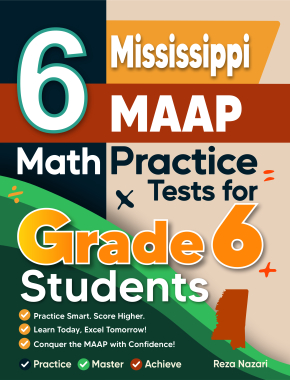
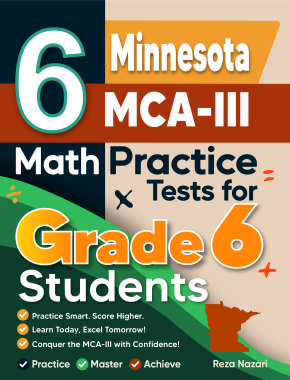


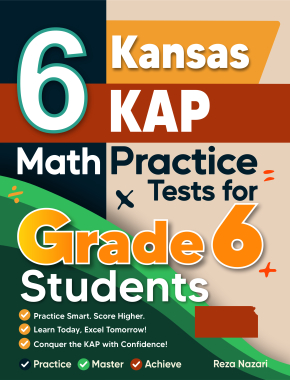


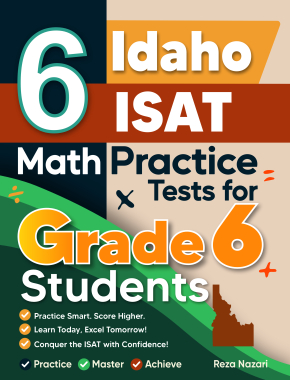
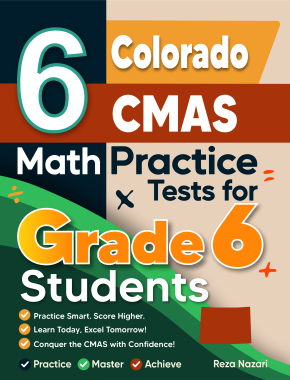




















What people say about "Balancing Math Assignments and Academic Papers: Tips for Busy Students - Effortless Math: We Help Students Learn to LOVE Mathematics"?
No one replied yet.